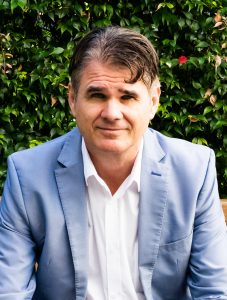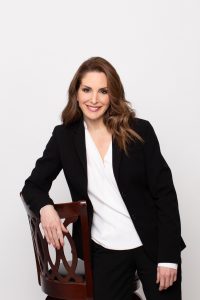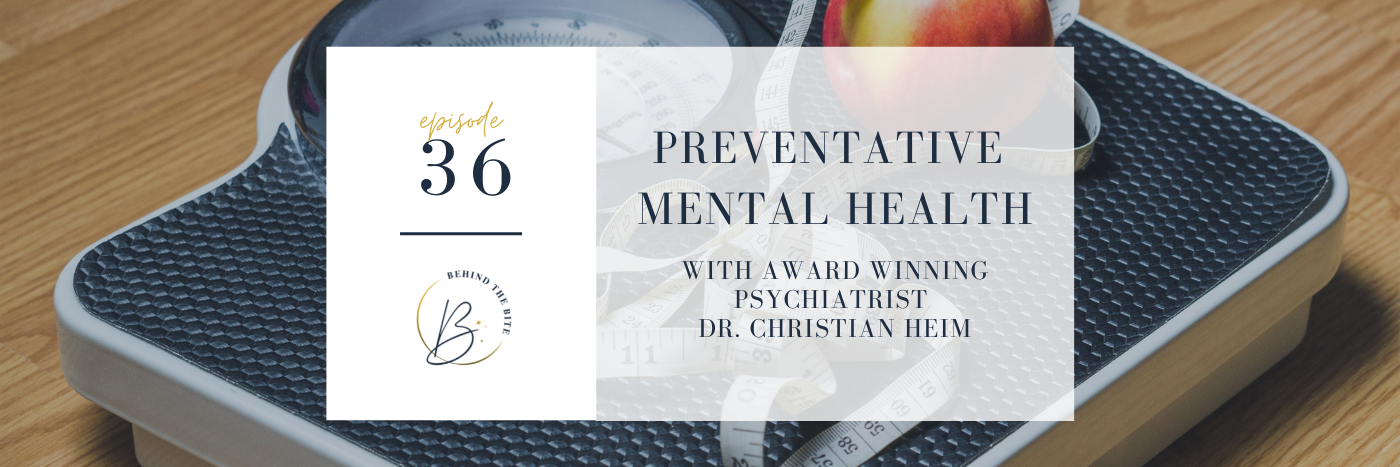Why should you be careful of the numbers? Can your strengths be turned against you, and how can you take them back into your power? What role does control have in some eating disorders?
In this podcast episode, Dr. Cristina Castagnini speaks with the award-winning psychiatrist, Dr. Christian Heim about preventative mental health.
 MEET DR. CHRISTIAN HEIM
MEET DR. CHRISTIAN HEIM
Dr. Heim Ph.D. is an award-winning Psychiatrist, Music Professor, and Churchill fellow. During his 20 years as a doctor and 13 as a psychiatrist he has heard the stories of 1000s of people, so he listens a lot. He gets lots of joy out of working as a consultant psychiatrist in psychotherapy. He speaks from a place of deep compassion and authority on Mental Health issues that are affecting us all in this new normal: anxiety, depression, addictions, trauma, suicide, personality issues, and relationship breakdown.
His latest book "The 7 Types of Love: navigating love in a fractured world" has just been released. He lives in Australia on the beautiful Sunshine Coast with his wife Caroline and loves taking long walks on deserted Australian beaches and eating celery.
Visit his
website. Subscribe to his
YouTube channel and listen to his
podcast.
IN THIS PODCAST
- Numbers are not important
- Use your strengths wisely
- Control is a hurdle
Numbers are not important
We encourage people to forget about the numbers, forget about the BMI, forget about the weight … because in a sense the eating disorder can be and mostly is a smokescreen for something else that is going on in somebody’s life, normally involving their whole identity. (Dr. Christian Heim)
Numbers are not important but when we are focused on the numbers, we lose sight of the actual problems behind the eating disorder.
By becoming number-orientated, whether it is in treatment or not, the patient can still suffer because that focus is being distracted and taken away from the real issue at hand: why is the eating disorder there in the first place.
Being focused on numbers also can manifest itself in doctors or patients becoming swayed by lab results that are normal, even when the patient is close to needing hospitalization. Numbers can be false.
Often people don’t know just how crude our medical tests are … this [could] be a life-threatening situation … but you end up with this [false] sense of security, that “I’m okay”. (Dr. Christian Heim)
Use your strengths wisely
Having a skill or hobby that you excel at, such as piano, swimming, or art, can manifest in dangerous ways when the mind uses that same near-perfectionism and competitive traits in order to aid the eating disorder.
Many patients that Dr. Heim has treated that had anorexia would fuel their eating disorder with their perfectionism or drive to succeed, and this would steer them towards life-threatening levels.
However, in order to combat this, at Dr. Heim’s practice, they teach their patients to use their skills and strengths to help them against the eating disorder, instead of letting the eating disorder use their strengths against them.
It really is something like “okay, you did really well in learning to play the piano and do this well, can we use those two techniques to battle against your anorexia, against your illness, so that you can be more yourself”. (Dr. Christian Heim)
Control is a hurdle
Control is about power, and often when people feel like their lives are out of their control, they achieve a false sense of calmness when they reclaim that power back by controlling every aspect of everything they eat because eating is within what they can exert direct control over.
In this sense, overcoming the need for control is a way in which many people could stop themselves from heading over the abyss into an eating disorder, although this is for a part of the population because eating disorders can manifest due to an incredibly wide variety of reasons.
In a medical setting, the doctor has to – in order to keep the patient alive – take away more control from them but this, because a lack of control or feeling disempowered is what pushed this patient over the edge, does not actually fix the deeper issue. The deeper issue is that the patient feels disempowered in their lives, and that has manifested as an eating disorder.
USEFUL LINKS
MEET DR. CRISTINA CASTAGNINI

I am a licensed Psychologist and Certified Eating Disorder Specialist.
While I may have over 20 years of clinical experience, what I also have is the experience of having been a patient who had an eating disorder as well.
One thing that I never had during all of my treatment was someone who could look me in the eye and honestly say to me "hey, I've been there. I understand".
Going through treatment for an eating disorder is one of the hardest and scariest things to do. I remember being asked to do things that scared me. Things I now know ultimately helped me to get better. But, at the time, I had serious doubts and fears about it.
If even one of my providers had been able to tell me "I know it's scary, but I had to go through that part too. Here's what will probably happen...." then perhaps I would not have gone in and out of treatment so many times.
My own experience ultimately led me to specialize in treating eating disorders. I wanted to be the therapist I never had; the one who "got it".
I will be giving you my perspective and information as an expert and clinician who has been treating patients for over 2 decades.
But don't just take my word for it...keep listening to hear the truly informative insights and knowledge guest experts have to share.
I am so happy you are here!
THANKS FOR LISTENING
Did you enjoy this podcast? Feel free to comment below and share this podcast on social media! You can also leave a review of
Behind The Bite on Apple Podcasts (previously) iTunes and subscribe!
 MEET DR. CHRISTIAN HEIM
MEET DR. CHRISTIAN HEIM I am a licensed Psychologist and Certified Eating Disorder Specialist.
While I may have over 20 years of clinical experience, what I also have is the experience of having been a patient who had an eating disorder as well.
One thing that I never had during all of my treatment was someone who could look me in the eye and honestly say to me "hey, I've been there. I understand".
Going through treatment for an eating disorder is one of the hardest and scariest things to do. I remember being asked to do things that scared me. Things I now know ultimately helped me to get better. But, at the time, I had serious doubts and fears about it.
If even one of my providers had been able to tell me "I know it's scary, but I had to go through that part too. Here's what will probably happen...." then perhaps I would not have gone in and out of treatment so many times.
My own experience ultimately led me to specialize in treating eating disorders. I wanted to be the therapist I never had; the one who "got it".
I will be giving you my perspective and information as an expert and clinician who has been treating patients for over 2 decades.
But don't just take my word for it...keep listening to hear the truly informative insights and knowledge guest experts have to share.
I am so happy you are here!
I am a licensed Psychologist and Certified Eating Disorder Specialist.
While I may have over 20 years of clinical experience, what I also have is the experience of having been a patient who had an eating disorder as well.
One thing that I never had during all of my treatment was someone who could look me in the eye and honestly say to me "hey, I've been there. I understand".
Going through treatment for an eating disorder is one of the hardest and scariest things to do. I remember being asked to do things that scared me. Things I now know ultimately helped me to get better. But, at the time, I had serious doubts and fears about it.
If even one of my providers had been able to tell me "I know it's scary, but I had to go through that part too. Here's what will probably happen...." then perhaps I would not have gone in and out of treatment so many times.
My own experience ultimately led me to specialize in treating eating disorders. I wanted to be the therapist I never had; the one who "got it".
I will be giving you my perspective and information as an expert and clinician who has been treating patients for over 2 decades.
But don't just take my word for it...keep listening to hear the truly informative insights and knowledge guest experts have to share.
I am so happy you are here!


Comments